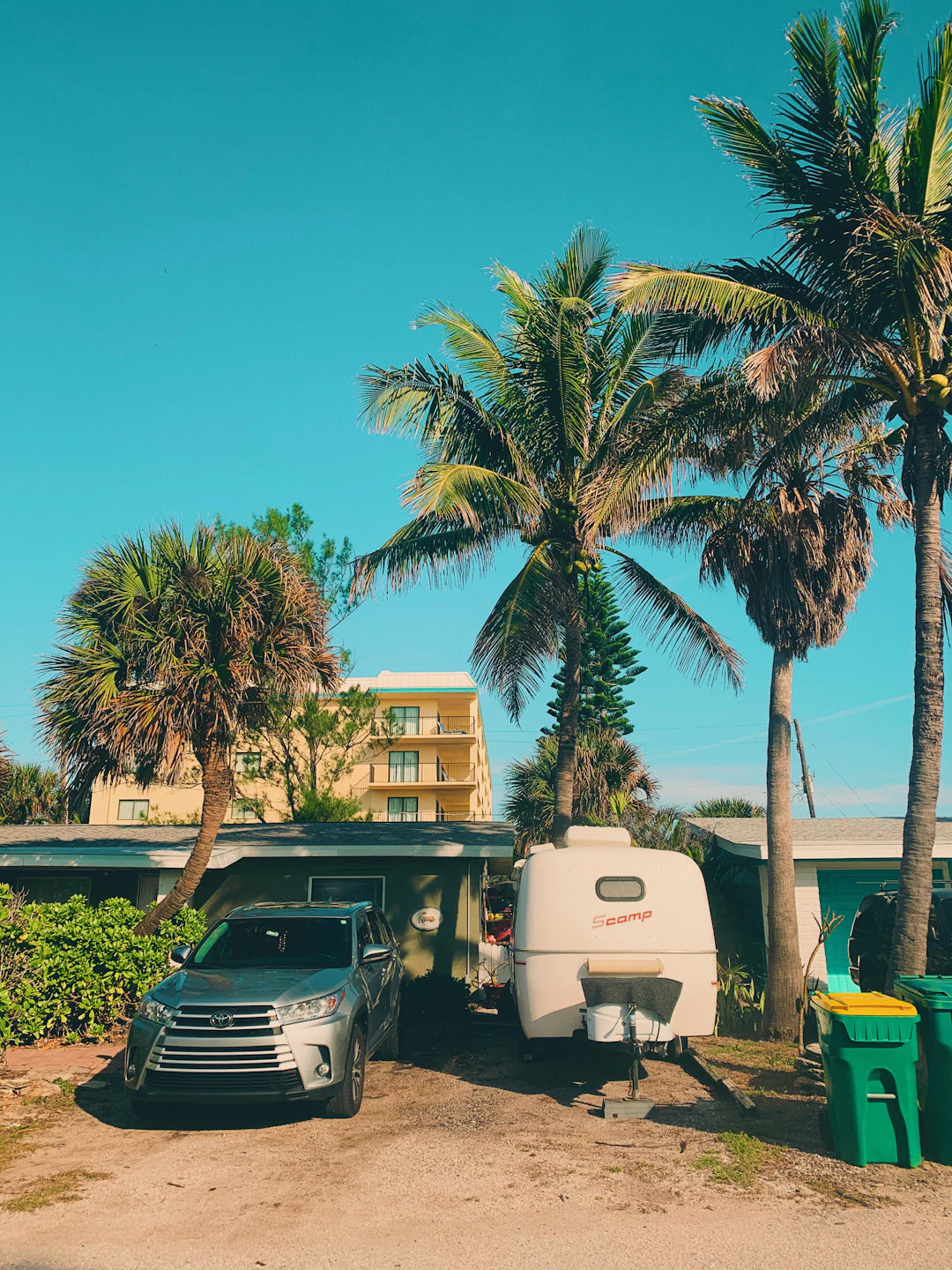
Renting vs. Buying Trailers: The Best Choice for You!
Share
Frequently Asked Questions
1. What are the main types of trailers available?
2. What are the benefits of renting a trailer?
3. What are the drawbacks of renting a trailer?
4. What advantages does buying a trailer offer?
5. What factors should I consider when deciding to rent or buy a trailer?
As outdoor enthusiasts, construction workers, or road trip aficionados, the need for a reliable trailer can become essential at some point. Whether you're hauling equipment or transporting recreational vehicles, deciding between renting and buying a trailer is a crucial choice. Here at Silver Ox Trailers, we understand the complexities of this dilemma. In this article, we'll explore the pros and cons of trailer renting versus buying, helping you make an informed decision that fits your needs.
The Basics of Trailers
Trailers come in various shapes and sizes, serving different purposes. From utility trailers and enclosed trailers to gooseneck trailers, there is a world of options available. Understanding your specific requirements is the first step. Here are a few common types of trailers you might consider:
- Utility Trailers: Great for hauling general cargo.
- Enclosed Trailers: Perfect for transporting valuable items securely.
- Equipment Trailers: Ideal for transporting heavy machinery.
- Car Haulers: Designed specifically for towing vehicles.
Trailer Renting: Advantages You Should Consider
Renting a trailer might seem like a temporary solution, but it comes packed with benefits that can match your needs perfectly.
Cost-Effective Option
If you only need a trailer for a short time, renting can save you money. Rather than putting a substantial amount of capital into purchasing, you can simply pay a rental fee, often significantly lower.
Flexibility and Variety
Renting allows you the flexibility to choose different types of trailers as needed. If your needs change from a car hauler to an enclosed trailer, you can easily switch without worrying about getting rid of a previously bought model.
No Maintenance Worries
When you rent a trailer, the maintenance responsibility typically falls on the rental company. This means you won’t have to deal with tire replacements, brake checks, or potential repairs. It’s hassle-free!
Trailer Renting: The Flip Side
While renting a trailer has its perks, it's essential to weigh those advantages against potential drawbacks.
Limited Availability
Rental trailers may not always be available when you need them. During peak seasons, you could struggle to find the specific trailer you desire, particularly if you have last-minute plans.
Long-term Costs
If you find yourself frequently renting a trailer, those cumulative costs may surpass the actual purchase price over time. It's wise to conduct a cost analysis to determine your best value over an extended period.
Restrictions on Use
Rental agreements often come with restrictions, including mileage limits or prohibitions on certain usages. If you’re planning on using the trailer more liberally, these constraints might prove frustrating.
Buying a Trailer: Why It Might Be Right for You
Investing in a trailer can be a severe commitment, yet with many upsides to consider, it may be the smarter choice for your long-term needs.
Ownership Benefits
When you buy a trailer, it’s yours entirely. You do not have to worry about rental fees accruing, and you have complete freedom over how and when you use the trailer.
Customization Options
Owning a trailer means you have the option to customize it extensively. Whether adding graphics for business branding or modifying it for specific needs, the entire setup can reflect your unique style and requirements.
Better Long-term Investment
Consider a purchase as an investment. With proper care and maintenance, trailers generally retain value fairly well. You might even recoup your costs if you decide to sell your trailer later.
Buying a Trailer: The SaaS Path
While buying may seem ideal, it isn't devoid of potential challenges. It's wise to consider these factors before making a commitment.
Higher Initial Costs
Buying a trailer requires a larger upfront capital investment. This amount can be daunting, especially if you’re just starting. The expenses don’t end there either, as you’ll need to factor in licensing, insurance, and maintenance costs.
Maintenance Responsibilities
Once you own a trailer, all maintenance is on you. This includes routine checks, repairs, and replacements. If you're not handy or lack the time, these responsibilities can quickly grow into annoyances.
Depreciation
Like any asset, trailers can depreciate in value over time. If you invest heavily initially, it’s essential to consider how much you might lose if you decide to sell later on.
Weighing Your Options: When to Rent or Buy?
Ultimately, determining whether to rent or buy a trailer boils down to your specific needs and circumstances. Consider these guiding questions:
- How often will you use the trailer?
- What types of trailers do you foresee needing in the future?
- Do you have the budget for a purchase, including all associated costs?
- Are you comfortable with maintenance responsibilities?
The Middle Ground: A Hybrid Approach
In some cases, a hybrid approach may make the most sense. If you only need a trailer occasionally, purchasing a basic model can be beneficial as your go-to. When special needs arise, consider renting additional units that provide versatility and meet specific demands.
Final Thoughts: Making the Right Choice for You
The decision between renting and buying a trailer can feel overwhelming. By weighing the pros and cons, including the financial implications and practical considerations, you will find clarity in your choice. Keep in mind that whether you lean toward Silver Ox Trailers for purchasing or opt for renting, having the right trailer at your disposal will significantly enhance your experience. Embrace this decision with confidence, and you'll be on your way to discovering the perfect trailer solution for your needs!

